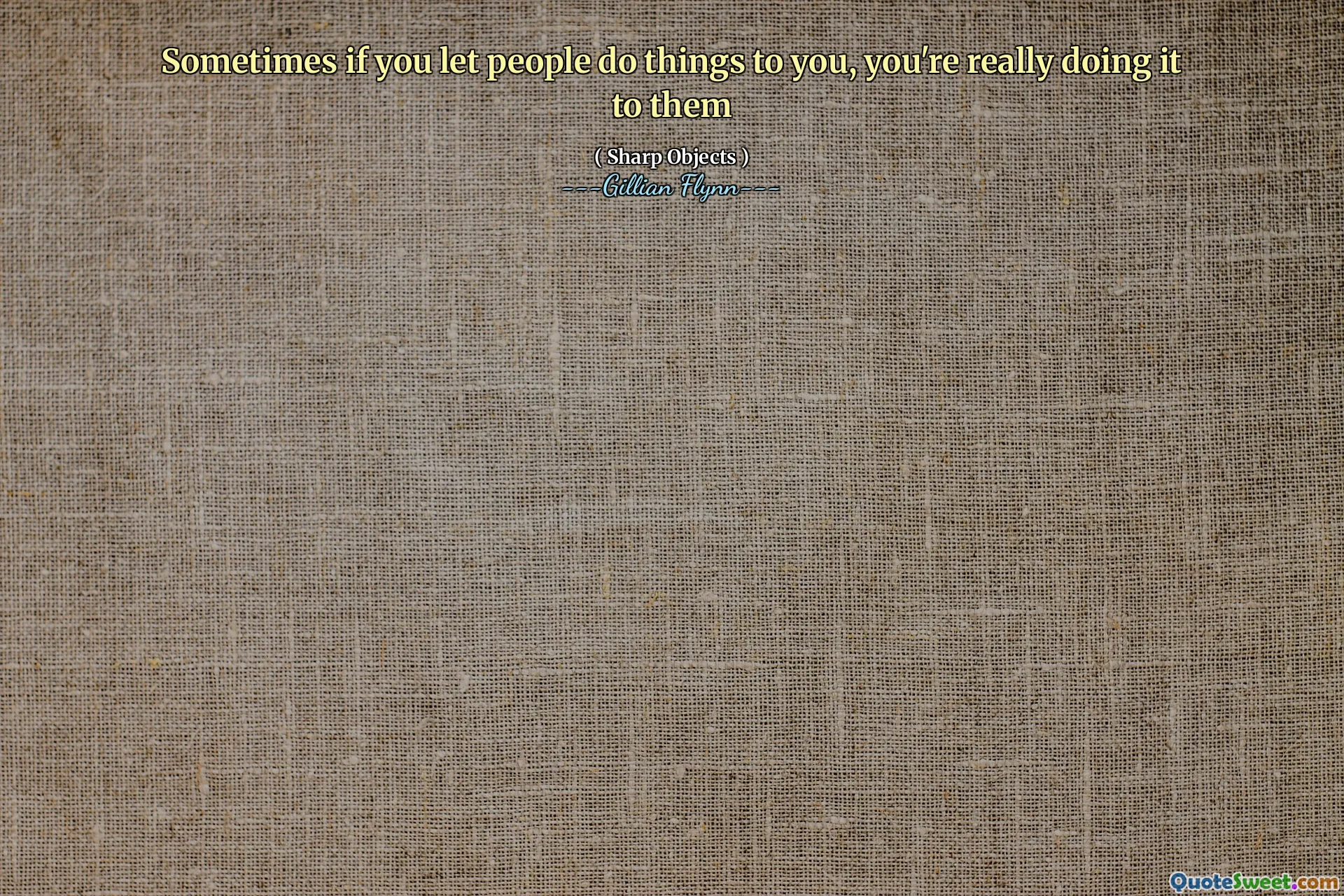
Sometimes if you let people do things to you, you're really doing it to them
This quote highlights the complex interplay between personal boundaries and influence. At first glance, it suggests that by not asserting oneself or by allowing others to take control, one inadvertently fulfills a role that can be just as impactful as direct action. It prompts us to consider how passivity or acquiescence can be a form of participation, thus shifting the view of responsibility and agency. In many relationships and social situations, we might believe that avoiding conflict or stepping back keeps us safe, but in reality, our choices—or lack thereof—can shape outcomes just as significantly as active intervention. This can be seen in contexts such as power dynamics, emotional manipulation, and societal structures where silence or inaction perpetuate systems or behaviors. Recognizing that what appears to be passive behavior is often laden with its own sort of influence encourages a deeper reflection on our roles within various interactions. Are we truly powerless, or do our choices contribute to the continuation of certain patterns? Understanding this nuance can empower individuals to navigate their relationships more conscientiously, promoting healthier boundaries and more mindful engagement. Overall, the quote embodies a profound insight: showing restraint or passivity is not necessarily absence of agency but can be an active participation in shaping reality. It reminds us to examine our actions and inactions with awareness, recognizing that everyone involved has a role, whether through action or permission, to create the dynamics around them.









